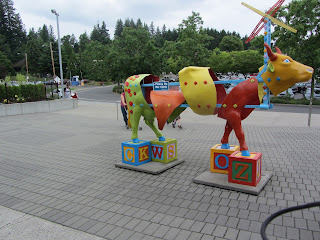Threads in the Social
Fabric
“How do you think you made him…or her…feel?”
I heard this statement frequently when I was little. Often
it was about bossing my little brother. Or refusing to share my toy with a
friend. Or insisting things be done MY way. As I grew up somehow I did learn
that my behavior could hurt someone. Selfishness hurt. Calling names that I
heard on the playground could hurt: “wop,” nigger,” “heinie,” “polack,” were to be never used. It
hurt feelings and was impolite.
Nowadays word calling is rampant. Even when the words aren’t
directed at me, they hurt. They are rude. They make me feel the world is
changing for the worse. Columnist Nicolas Kristoff talked of hate rending the
social fabric, an old phrase meaning society’s ability to work and play and
govern together.
An old Greek myth tells of a hero on a journeys finding three
women in a market square weaving a large tapestry. They told him they were
weaving the threads of every person’s life, in and out, over and under. When
the thread was cut, or ended, it left a hole.
Our early settlers made fabrics out of scraps. Even when I
was a child we had a “rag bag” filled with worn out pieces of clothing. My
mother didn’t sew and I don’t remember anyone quilting, but we had some “crazy
quilts” handed down from previous generations. They were made of odd-shaped
fabric scraps sewn together by large black stitches. Each scrap had a story,
but I only remember the blue velvet piece from a dress my grandmother wore when
she met my grandfather. I loved the way it felt when I rubbed it.
Last week one of my recent Portland friends mentioned a
lovely little indie bookshop in Newburyport, Massachusetts he had visited recently.
It turned out to be one near my son’s home that I also knew and loved. As we
shared our memories about this far away bookshop, we created another common
thread. My life now is full of these threads. I treasure each one.
The Olympics show people from different backgrounds who have
a passion for the same sport. Who can forget the athletes smiling at their
competitors after a tough race? Those participants are connecting with each
other-- and with us who have these same passions but lesser abilities. Watching
them, and sharing the events with others, weaves different threads into the social
fabric. They make us feel good.
Last winter a Wisconsin friend wrote me that a neighbor
freely plowed their entire street—one too small for the city plows to bother
with in a huge storm. It seems to me it was about the same time that a Wisconsin
dentist shot a prize lion in Africa. Two Wisconsin men. Which one improved the social fabric?
A friend’s daughter has been taking part in an international
scavenger hunt, where the participants take a selfie doing an assigned task.
She has read stories to people who can no longer read to themselves, given
doughnuts away on the MAX train, and dressed up as a pirate bringing a
“treasure” to a shut-in. One of her colleagues pretended to be a butler, and
gave coffee away down town. How many people did they make happy during their
scavenger week? How do you think they felt?
I don’t know if these little individual projects, one by
one, can ever make up for the many leaders who call names and demean others in
the name of free speech. I’d like to think they do. So, like Ben Franklin, when
we get up in the morning let us think about “what good should I do this day?”
At the end of each day, he asked himself about his actions.
Other threads are ideas, and a friend shared this with me. When
promoting my Walking Portland Oregon books at book fairs, I
sometimes put out a box of individual snapshots used in the book, asking
passers-by if they can identify what and where it is. He suggested I post one
on my blog pages, asking readers to identify it. At the moment I have no ideas
of prizes—it will be just for fun. Let me know your opinion, as well as the
answer to this picture # WP 1.
PORTLAND # 1


Beautifully stated, Sybilla.
ReplyDelete